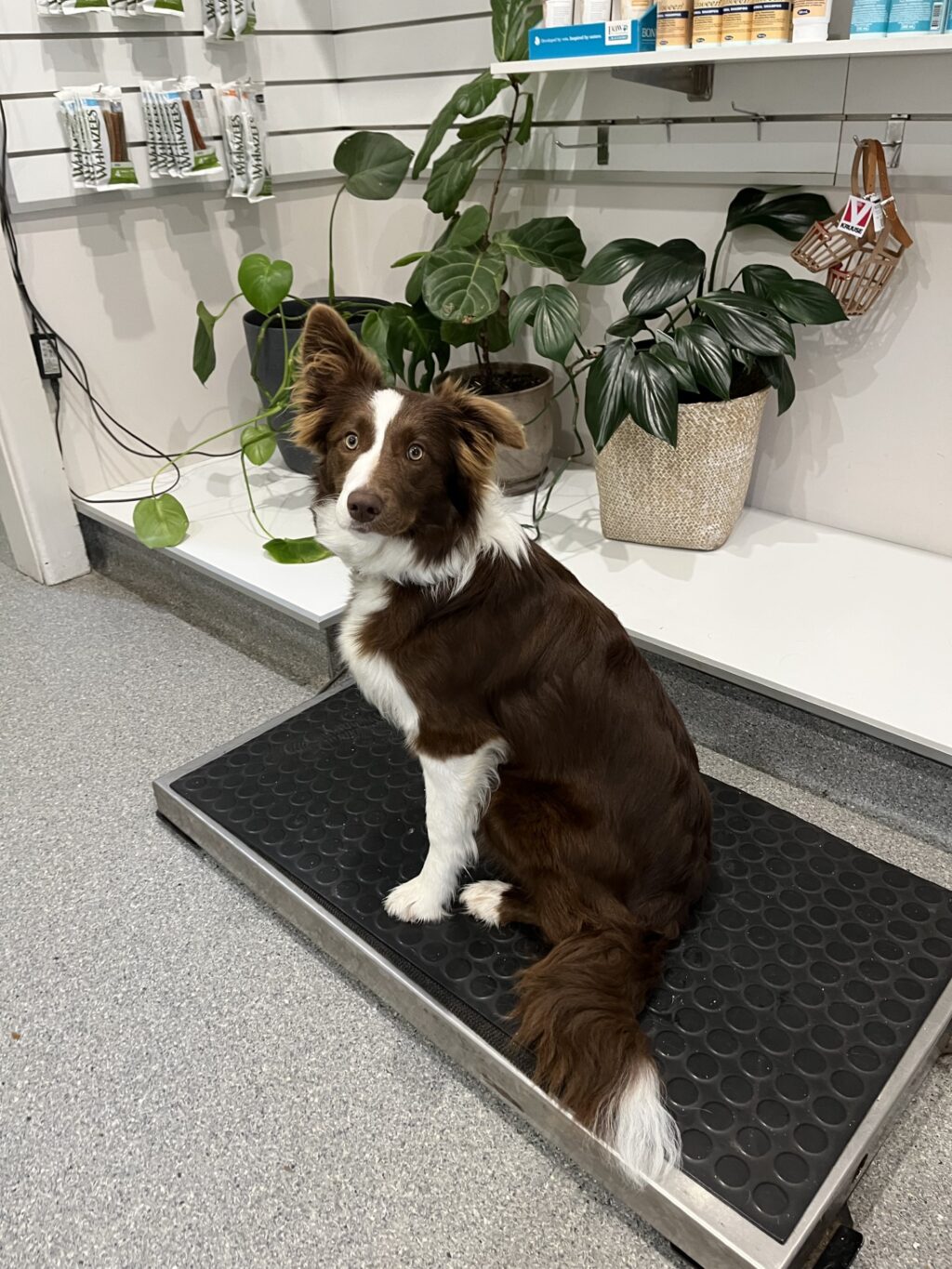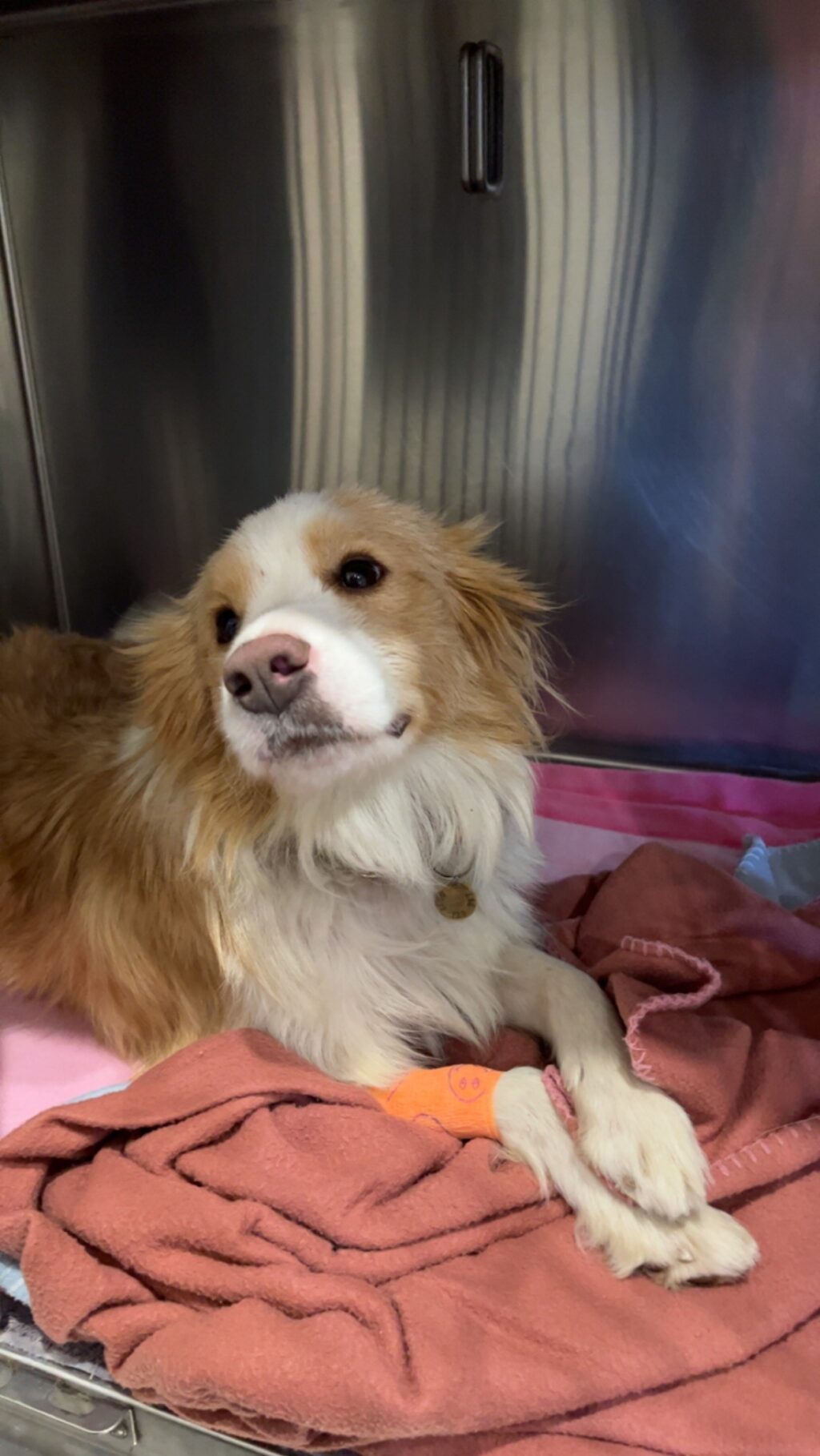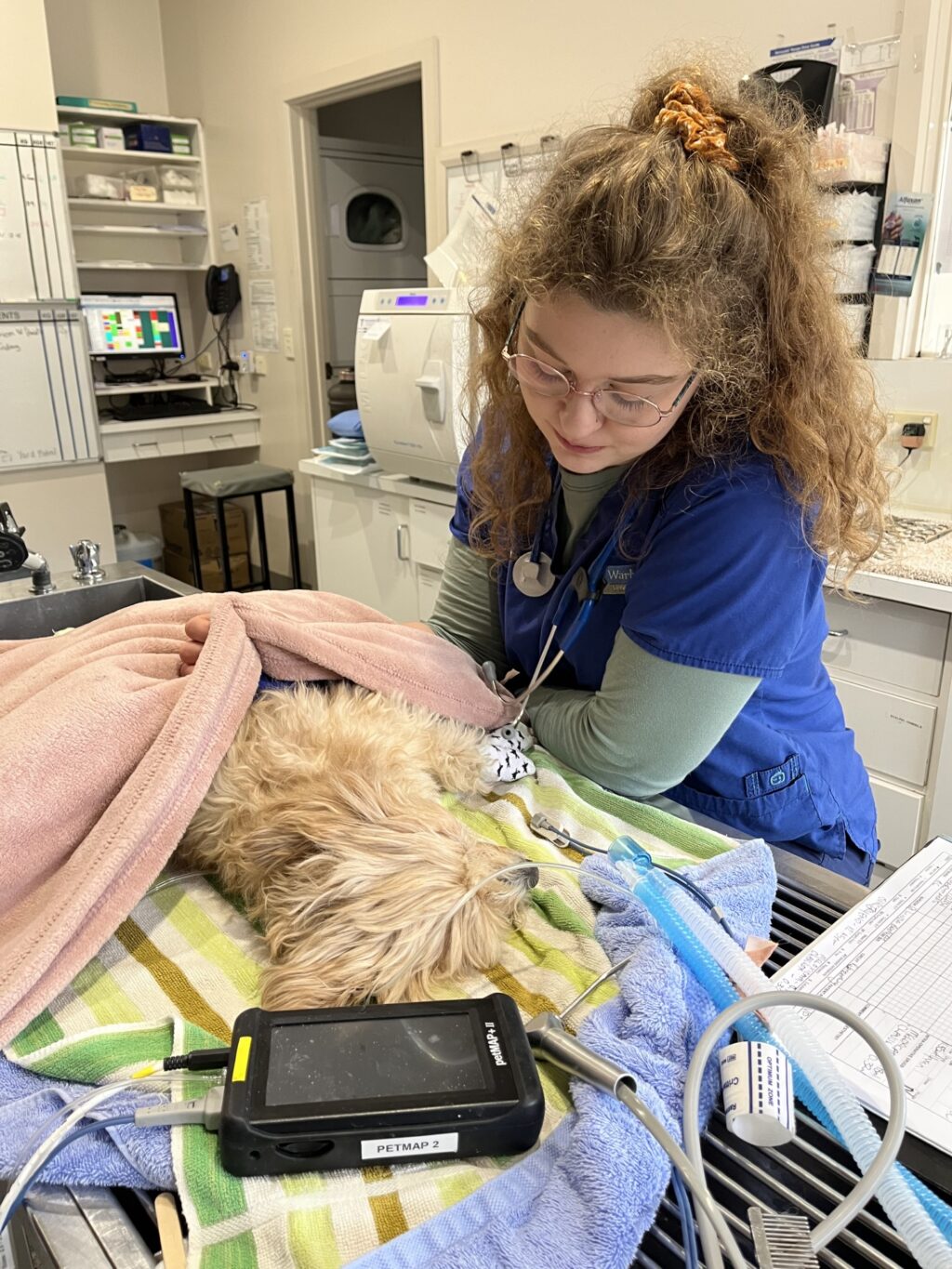By Dr Ellie Merritt
Patients undergoing surgery are generally admitted to hospital between 8am and 9am on the day of their surgery. Upon admission, a veterinary nurse will take you through the admission form which includes your contact details, the procedure your pet is undergoing, an estimated cost of the procedure and the risks associated. If your pet has recently been unwell, or you’ve noticed any changes in their eating, drinking or toileting, we ask that you share this information with us at the time of admission.
Following admission, your pet will undergo a full clinical examination, including examination of the eyes, ears, nose, mouth and gums, auscultation of the heart, palpation of the abdomen and a temperature measurement, all while receiving lots of cuddles and reassurance from our wonderful nurses!



Prior to surgery, your vet will tailor an individual anaesthetic protocol based on your pet’s age, breed and health status. A sedative is then administered to help your pet relax and to reduce the dose of anaesthetic agents required. In due course, an anaesthetic agent in administered and your pet undergoes their general anaesthetic and procedure. A veterinary nurse will monitor your pet’s vital signs, throughout the procedure and during recovery. All animals are administered pain relief following their procedure, this is crucial to their physical and mental recovery. Your pet will be recovered in a quiet, warm, comfortable bed while being monitored by a dedicated hospital nurse (who is trained in giving the BEST cuddles!).



Most pets are discharged on the afternoon of their procedure. Prior to discharge, they undergo a pain assessment, any pets which are showing signs of pain will be administered extra pain relief and kept in hospital overnight. Most pets are fed a small meal prior to discharge. A veterinarian or veterinary nurse will discuss your pet’s after care with you when you pick them up.
